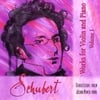How do you think about practicing, as a student or a teacher? There are a number of ways to view the "practice" of practice, and Ed Pearlman supplies eight over at Music Teacher's Helper Blog. He lists some pros and cons to some of these approaches, which just goes to show that our purposes behind practice need to be fluid, dynamic, and in a state of constant rediscovery.
I would add another point of view to this list: Practice as a developer of self-reliance. This relates to Ed's #5 (practice as a mirror of lesson work), but I think it is important to clarify self-reliance as an important motivator and signifier of true independence in students. It is especially desirable to develop self-reliance in students when it comes to the realm of problem-solving.
There's not much more satisfaction to be gained from teaching than when a student comes to a lesson with a problem (technical, rhythmic, interpretive, etc.) fixed. For example, if a student can play that crescendo in her Beethoven Bagatelle without speeding up the tempo unnecessarily, I'll say something like, "Great job on that crescendo there! How did you keep the tempo from rushing in your practice this week?" Invariably, the student will supply me (and in her own words) with a descriptive practice technique that gets good results. Usually it will be one I've been trying to inculcate over weeks or months (such as using the metronome at a slow practice tempo, or counting aloud steadily as you play, etc.)
In other words, you will rarely hear a response to "How'd you do it?" that reflects a bad practice technique. The student will be actively realizing that she is internalizing better practice habits that get real-world results. The satisfaction I can see on a student's face when this happens is a big part of what makes teaching applied music rewarding.
I think the trick is to take advantage of a great psychological set-up: I put the student in a position to express her own competence without any preachy interference from her teacher. If a student is getting tangible results on her own, that student will veer away from bad habits and continue to explore self-reliant problem-solving with more confidence. Simple, right?
Wednesday, July 25, 2007
Thinking about Practicing - 8 Ways (Plus One)
Subscribe to:
Post Comments (Atom)








2 comments:
Thanks, Justin. I’ve read that this sort of thing is easily found. It took me a lot of searching. Easy to do, unless you have to do it by the manual. Mass communication certificate | aerospace engineering associate to bachelors degree
nice
Post a Comment